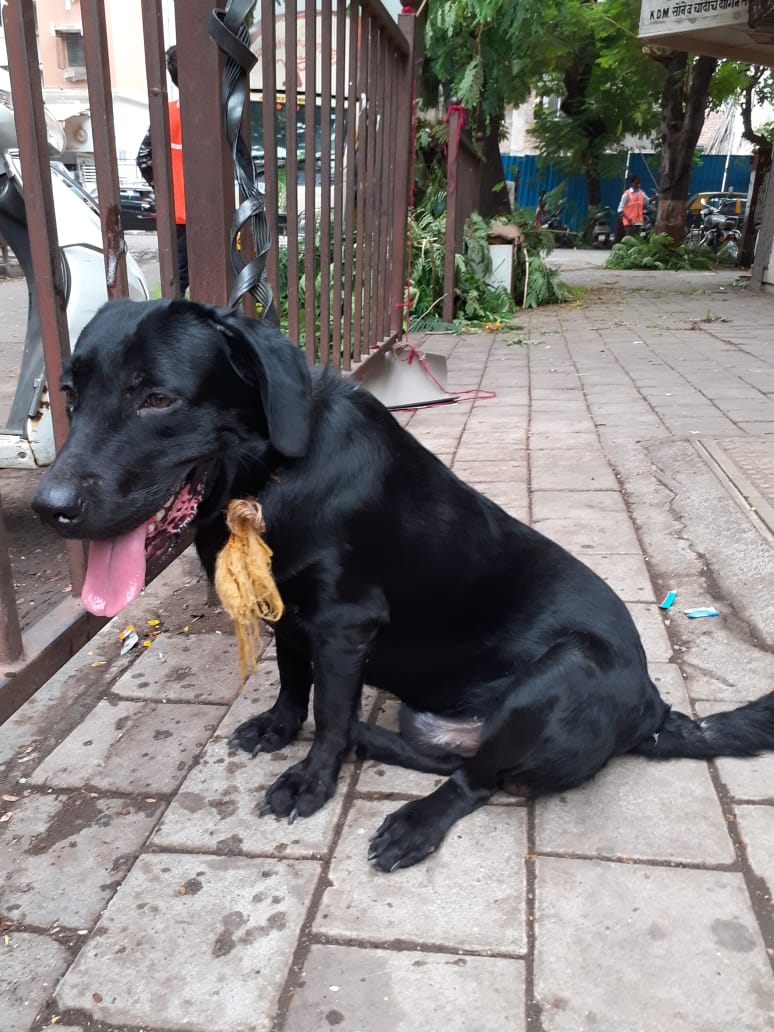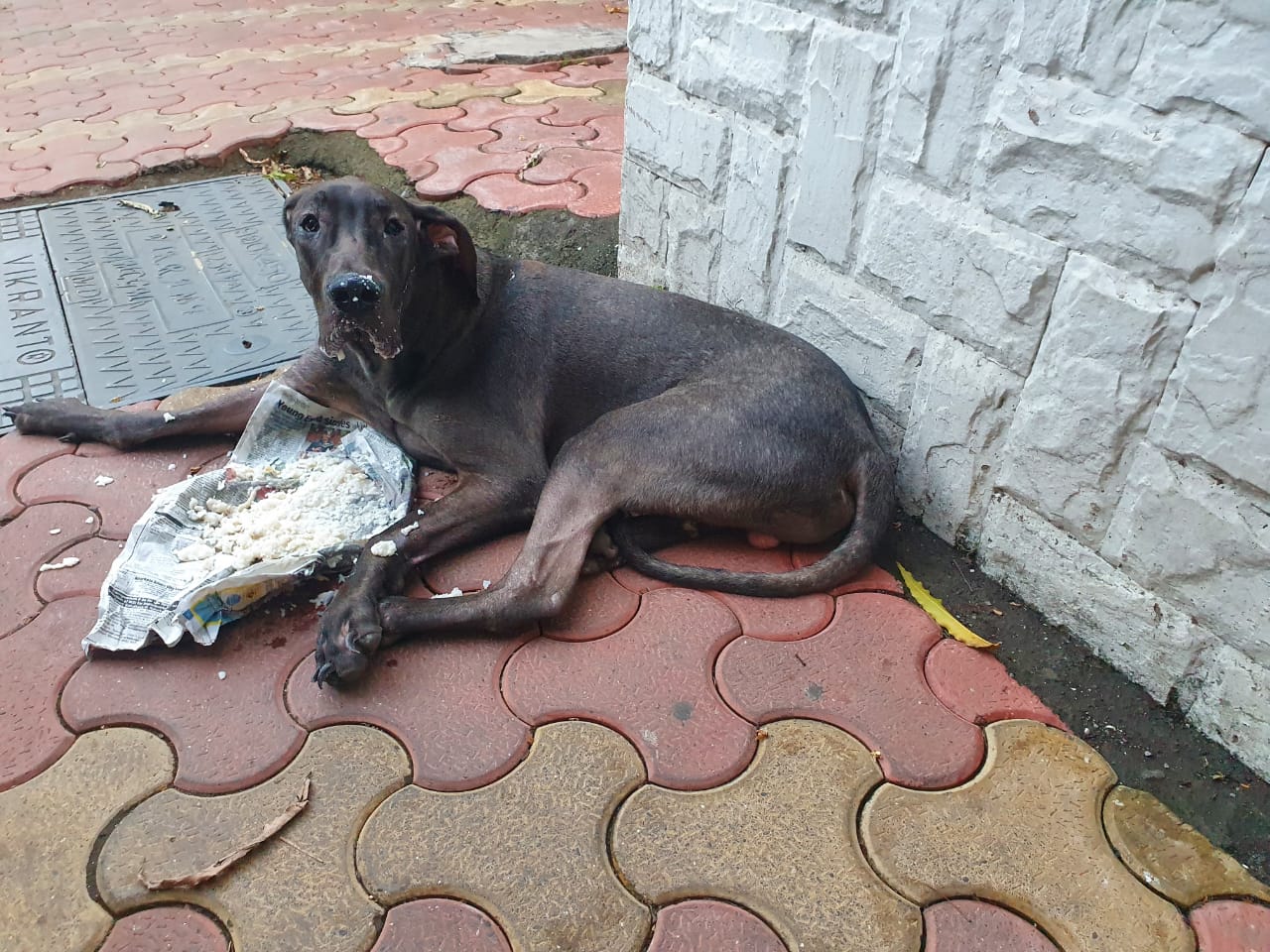As the COVID-19 pandemic claimed lives and livelihoods around the world, a small, privileged percentage of the Indian population suddenly found themselves with a whole lot of time on their hands.
To save themselves from getting bored in the house, many of these mostly urban, upper-middle-class people either adopted or purchased puppies and dogs—giving rise to the phenomenon of the Pandemic Puppy. But lots of them did this with little idea of the commitment it takes to have a pet. Or they later fell prey to misinformation, believing that their companions could potentially give them COVID-19, a fact that was later discovered to only carry a remote possibility. Some others, hit by economic difficulties, could no longer provide for their pets.
Videos by VICE
And so, a second crisis hit the streets: Hundreds of fully grown dogs and very young puppies were given up, throwing animal shelters and rescuers into chaos.
Over the past couple of months, pets have been left behind in balconies without food and water, tied to lampposts in public areas, tossed out of moving vehicles hours away from their homes, and bundled in sacks and left at the doors of animal shelters.

Abandoning pet animals is a crime under Sections 3 and 11 of The Prevention of Cruelty to Animals Act, 1960.
Some of the actual excuses behind the abandonment that animal activists and welfare workers have heard have ranged from the banal to the downright ridiculous. ‘The maids are not coming so there’s no one to walk the dog and feed him’ is one gem. ‘There’s too much shedding,’ ‘We are relocating,’ and the most ridiculous one: ‘We’ve run out of kibble.’
“At this point, I don’t even bother asking them the reason for surrender anymore,” says Deepa Talib, chairperson of the Anubis-Tiger Foundation in Mumbai, that rescues, rehabilitates and re-homes abandoned dogs. They have rescued over 60 animals in the past three months. “It just makes me angry.”

Some among the abandoned pedigree animals were breeder discards. Adult dogs used in breeding are put through unspeakably cruel and unethical practices, often leaving them with ailments that are exorbitant to treat. As the pandemic wore on, breeders also discarded sickly, sometimes parasite-infested dogs once they could no longer “manufacture” puppies. “Since puppies are usually separated from their mother at 10-15 days of age, they lack the essential nutrients they’d otherwise get from their mother’s milk,” says Deven Baheti, who co-runs Deven’s Hope, a Hyderabad-based rescue. “Naturally, pups not adopted during the lockdown fell sick and were no longer an asset but a liability in terms of medical treatment to the breeders, who’d just discard them.”
As coronavirus cases continue to rise in India, the numbers of adult dogs and young puppies abandoned on the streets have surged, leaving animal rescuers, welfare organisations, and shelters shocked and scrambling for resources. VICE spoke to rescuers across India, all of whom reported that they were taking in at least twice the usual number of cruelty and abandonment cases. As if this wasn’t enough, strays seemed to have lost practice with being on crowded roads, and the number of accidents involving them have spiked. Just last Sunday, Padmini Stump of Pune-based shelter and rescue, Mission Possible, got calls about 17 injured dogs.
“We work until four or five in the morning,” she laments after a morning of rescuing four dogs. “Some days are quieter and we think ‘Oh, maybe tonight we’ll get to go to bed on time, and then at 3 a.m, we get a call. I am 62 years old. I haven’t seen my family in six months. I have more than 1,000 dogs, split between two shelters and my home, where I have about 400. Many of these already need medical care. It’s pure madness.”
Rescuers have had no choice but to respond, ploughing through transport restrictions and limited access to veterinary care.
Some have dug deeper into their own pockets and sometimes, those of their friends and family. Fundraisers have been held in haste. Others, like the Puppy Rescue Crew Foundation (PRCF) in Guwahati, have been lucky to have the support of the local state police, who pitched in with rescues.
“The only way to cope with this was to work extra hours, and put in extra effort,” says a spokesperson from Animal Adoption & Care (AAC), a Mumbai-based rescue. “We simply had to make it work. If we couldn’t, we made sure to find an organisation or a rescuer who could.”

Second Chance Adoption Center in Bengaluru quickly hit full capacity and began issuing adoption appeals by the dozen to make space. “We have had over 100 calls (since March) but unfortunately we have been able to take in only half that volume,” says Sanjana Madappa, a rescuer who works closely with the centre.
This cloud has not been without its silver lining though. In the middle of the lockdown, AAC volunteers managed to assist a cat through a painful and complicated birth under the guidance of a vet on video call. Some of the rescuers VICE spoke with also noted a welcome increase in the number of people willing to foster animals. Stump, who is usually very rigorous and strict about adoption screenings, has sent a few dogs to promising forever homes this week.
Stories like these give us hope, and balance out the trauma of knowing of or even accidentally chancing upon graphic and triggering images of animals on social media. But the truth is, animal rescue and welfare organisations shouldn’t have to even exist.
Knowing what it takes to rehabilitate an animal emotionally and physically, nothing sufficiently makes up for what the animal has to go through when it’s separated from its owners.
“We had one dog that was abandoned and she became very unfriendly and aggressive,” says Prerana Gogoi of the PRCF. “She was so disturbed when she first came to us, but she’s now the happiest kid in the house. But what if it wasn’t my house?”
Follow Pratika Yashaswi on Twitter.




